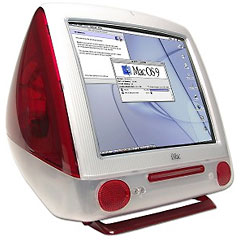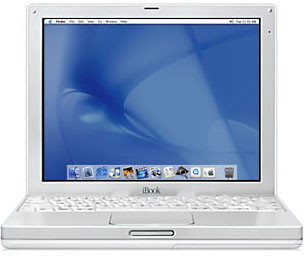McDonald’s, Burger King, Subway, and a host of other businesses successfully sell franchises around the country – and sometimes around the world. Last week John Scheeser proposed Apple do the same thing with its retail store in an article published on The Mac Mind.
At first glance, it sounds like a great idea. Apple has done all the master plan work for store design and marketing. By franchising, Apple would license partners in various locales. These franchisees would then set up and run Apple retail stores following Apple’s guidelines.
Sorry, John, but it’s not gonna happen.
The Franchisee
The franchise owner would be responsible for the physical location, would be required to buy minimum levels of inventory from Apple, would have to follow Apple’s retail store guidebook, and would also have to pay a franchise fee to Apple for the privilege of running an Apple retail store.
 That may not sound like a bad idea, but anyone who knows the ins and outs of computer retailing should see the problem: There’s no money in name brand hardware. After figuring in shipping, salaries, and other overhead, a store may actually turn a higher profit from a $30 memory installation fee than they make selling you a $999 iMac.
That may not sound like a bad idea, but anyone who knows the ins and outs of computer retailing should see the problem: There’s no money in name brand hardware. After figuring in shipping, salaries, and other overhead, a store may actually turn a higher profit from a $30 memory installation fee than they make selling you a $999 iMac.
There are only two ways to make money selling computers: Build your own or sell a lot of accessories. In the Windows and Linux worlds, any hobbyist can throw together a PC with off-the-shelf parts; Mac users don’t have that option. That means the Apple retailer – whether a franchisee, chain store, or local dealer – has to sell you some software and/or peripherals to make it worthwhile selling you a $999 iMac. Without the add-ons, the profit doesn’t justify the investment in inventory.
That’s the situation today. Adding franchise fees would make the situation even more difficult than it already is for local Apple dealers. I can’t imagine anyone franchising an Apple retail store, since the return on investment would be minimal.
Apple Computer
If that’s the case, why is Apple setting up retail stores?
First and foremost as a marketing tool. The mere presence of an Apple retail store in a busy location provides tens of thousands of brand exposures per day. Add to that the hype surrounding each store opening, and you can see how Apple justifies creating these stores.
Secondly, Apple makes the whole profit on each iMac, iBook, Power Mac, and PowerBook sold, just as they do with their online store. Remember, Apple has an overall profit of about 28% when you look at the whole hardware/software mix. They probably make less than that on a $999 iMac, but they definitely make more than that on each copy of Mac OS X or AppleWorks they sell. Factoring in store overhead and the cost of shipping inventory, Apple can still make more off each individual sale than your local Apple dealer.
 Thirdly, to grow profits. Apple is growing both its market and the percentage of sales it makes directly. I’m guessing Apple will sell at least 5 million computers this year, since that’s just a 10% increase over the FY 2000 level. I’m guessing Apple will exceed that, since the TiBook and iceBook are so hot.
Thirdly, to grow profits. Apple is growing both its market and the percentage of sales it makes directly. I’m guessing Apple will sell at least 5 million computers this year, since that’s just a 10% increase over the FY 2000 level. I’m guessing Apple will exceed that, since the TiBook and iceBook are so hot.
Beyond a 10-20% growth in units sold, Apple makes a higher profit on every unit sold through its online store or its own retail store than they do selling computers to CompUSA, the mail order houses, or your local dealer. It is in Apple’s best interest to sell as many Mac directly as possible.
Before opening any retail stores, Apple had grown its online store to the point that over one-third of all Macs sold in the United States were sold through The Apple Store. My guess is that only a small percentage of those came at the expense of mail order houses, since they often have promotional deals that make their prices more attractive than Apple’s retail prices.
My guess is that the vast majority of Apple online sales come at the expense of your local Mac dealer, the very person who would be the logical person to consider franchising an Apple retail store. From their perspective, Apple already costs them sales through the Apple Store. Apple is both a supplier and a competitor; running an Apple retail franchise really wouldn’t change that.
Unlike the local computer retailer, who is usually struggling to survive on shrinking profits and with increased online competition, Apple has the deep pockets necessary to run a successful retail operation. Their billions allow them to invest in market research, store design, and training at a level unavailable to locals. They can cherry pick one market after another, opening a new Apple retail store every week, getting scads of free publicity, and making only a small dent in their cash reserves.
Believe me, local dealers in markets large enough for an Apple presence should be scared – an Apple retail store may increase the Mac market, but it’s also one more competitor and one more organization to hire away their best employees. Local dealers may be able to compete on price and service, but it won’t be easy.
The Alternative to Franchising
No, Apple shouldn’t even think about franchising. The people most likely to buy a franchise are the very ones who know what it would cost them.
No, Apple needs to think different.
In the past year, CVS came to town with a huge drugstore just a few blocks from home. Rather than let the neighborhood pharmacy/variety store die a slow death, CVS bought their customer list. The local store closed, but the national chain store found a way to make that happen without creating a lot of resentment. (Or so it appears.)
I think it would make the same kind of strategic sense for Apple to consider that model as it launches retail stores. Talk to the local dealers, see if they might consider selling the whole operation to Apple, and find a way to come to town without creating animosity from exiting Apple retailers. That would bring in experienced employees (to be retrained in the Apple way, of course) and create links to an existing base of loyal customers.
With Apple’s deep pockets and long-term strategy, this could be a powerful tool for expanding its retail stores, especially once Apple goes beyond the top 50 markets. The smaller the pie, the less pieces you can cut it into.
Franchising the Apple retail store just doesn’t make sense, but working with local dealers when an Apple store comes to town certainly does.
Keywords: #applestore #appleretailstore
searchword: franchise

